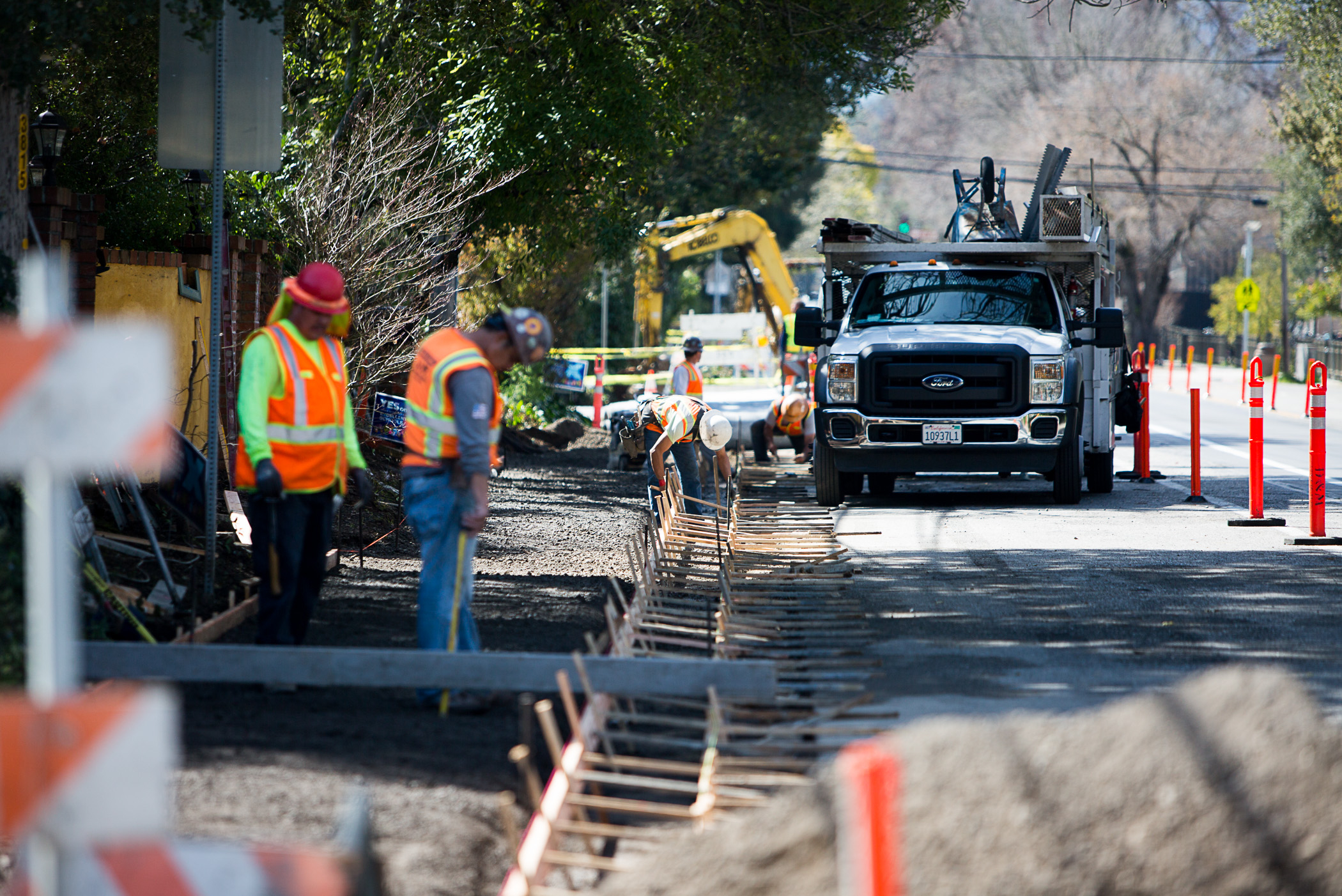The largest increase in developer-impact fees that Menlo Park has seen in recent years should bode well for upcoming infrastructure projects worth tens of millions of dollars.
Menlo Park collected nearly $7.3 million in transportation, construction and storm-drainage fees during the 2022-23 fiscal year, according to a staff report for the Tuesday, Jan. 9, City Council meeting.
That amount is the highest in the past five years the report covered. It also represents a considerable upward trend since the economic shutdowns during the height of the pandemic.
"In a broad sense, construction activity did pick up after the pandemic, which triggers the payment of impact fees," Menlo Park Assistant City Manager Stephen Stolte said in an email to The Almanac. "The size and use of buildings also affect the amount of fees paid to the city."
For previous years, according to the report, the city collected $4.1 million in 2021-22; $938,000 in 2020-21; $3.1 million in 2019-20; and $6.1 million in 2018-19 from those fees.
The council held no discussion on the report as it was part of the meeting's consent calendar, in which items are typically approved without deliberation. Council members could not immediately be reached for comment afterward.
Impact fees are what local governments often charge developers to help fund public improvements that mitigate adverse effects of their projects.
For transportation fees, according to the report, Menlo Park took in $5.4 million from developers in 2022-23.
"Due to growth and development in the city of Menlo Park and surrounding cities and the region, increased pressure has been put on the transportation system," the report said. "The purpose of the transportation-impact fee is to provide adequate transportation improvements to serve cumulative development within the city."
The report pointed out that the city needs $48 million in transportation fees to fund transit-related projects over the next five fiscal years.
Construction fees paid by developers totaled $1.8 million in 2022-23, according to the report. The city will need $11 million in these fees for street resurfacing and reconstruction projects in the coming years.
Storm-drainage fees from developers came in at about $138,000 last fiscal year, according to the report. These fees go toward storm-related projects such as those in preparation for a major tempest.
The city has identified $12 million in improvements against a two-year storm while an additional $27 million is required for a 10-year event.
The city could see funds from the fees continue to increase. "There are a number of pending and approved development projects," Stolte said. "Various factors affect construction timelines for developers. Impact fees are paid closer to the time of actual construction."
The report also provided the council updates on other fees. The below-market-rate (BMR) housing fees, for instance, generated $6.5 million in 2022-23 — up from the $1.3 million in the previous fiscal year.
Over the past several years, the report said, the council has committed to using BMR fees for affordable-housing projects.
So far, according to the report, the total funding approved for those projects is $9.3 million.
"The funds for these projects will be disbursed over the next few years," the report said. "It is anticipated that approved non-residential development projects will also be paying their in-lieu payments in the next few years to help fund these future affordable-housing projects."


Comments
Registered user
Menlo Park: Park Forest
on Jan 11, 2024 at 11:05 pm
Registered user
on Jan 11, 2024 at 11:05 pm
Hopefully the city has an alternative source of funds if the US Supreme Court rules against El Dorado County in Sheetz v. County of El Dorado. It is a simle case of imposing impact fees as a quid promquo for getting a building permit.
This case was heard by the court just last Tuesday.
Web Link
Registered user
Woodside: Emerald Hills
on Jan 16, 2024 at 11:44 am
Registered user
on Jan 16, 2024 at 11:44 am
A bit more complicated than quid pro quo fee for a permit. Web Link
Fees that meet "nexus" and "proportionality" requirements are well established in law. AB1600 is based on that (for *administrative* fees).
Sheetz is objecting to the size of the fee not its existence.
They say the "fee" is not "proportionate" and El Dorado sidestepped the proportionality requirement, by adopting a fee imposing ordinance in lieu of an administrative fee anchored by a valid AB1600 nexus study.
El Dorado allegedly took the ordinance route to avoid proportionality.
Each of the fees in the above Menlo Park article are *administrative* fees consistent with a valid underlying AB1600 nexus study that justifies proportionality. I hope. If not, they should be struck.